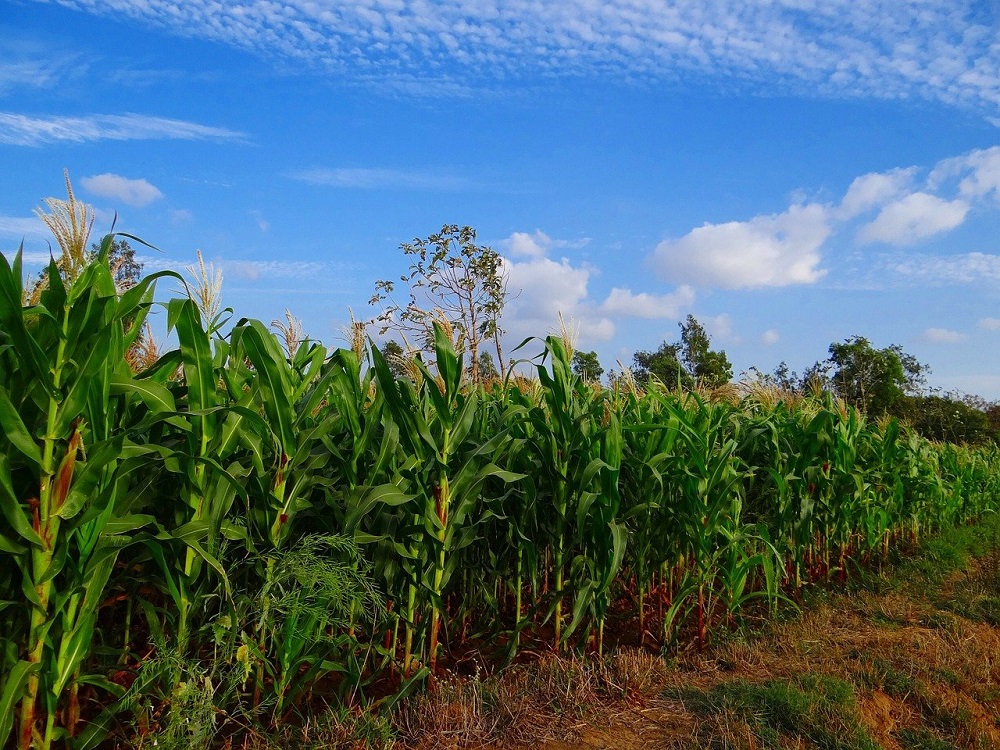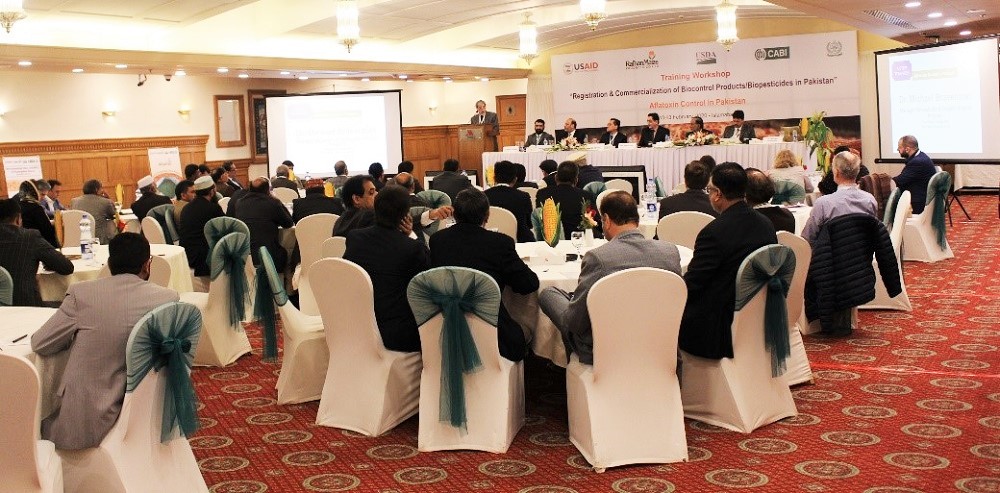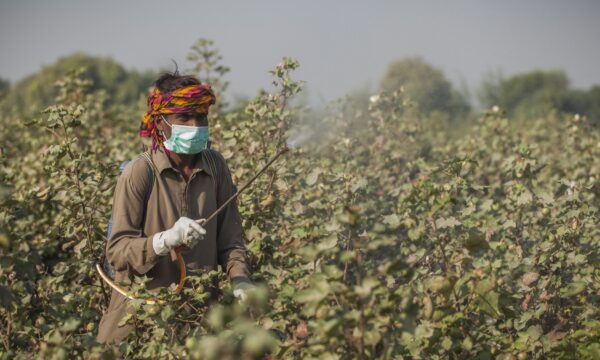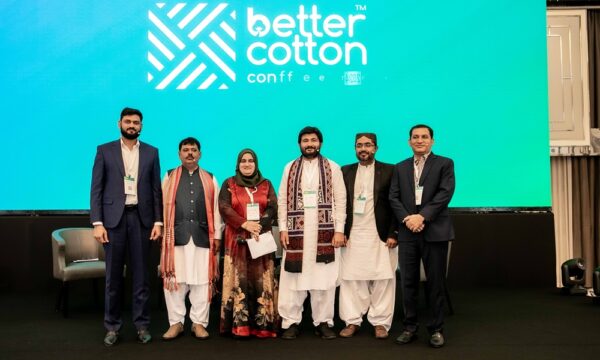
CABI, with the financial assistance of the United States Agency for International Development (USAID) and the United States Department of Agriculture, Foreign Agricultural Service (USDA-FAS), and technical assistance from IR-4 project, is helping Pakistan move a step closer towards the registration of biocontrol products to fight a range of crop pests and diseases which can impact upon the country’s agricultural and economic productivity as well as food security.
In cooperation with the Government of Pakistan’s Department of Plant Protection, IR-4 is working in partnership through CABI to help the country improve the commercial availability of biopesticides as part of a move towards more organic agriculture which can reduce incidences of pesticide contamination in a range of agriproducts such as maize, wheat, rice and cotton.
One example of this is CABI’s work with partners, including the Crop Disease Research Institute (CDRI), National Agricultural Research Centre (NARC), the Pakistan Agricultural Research Council (PARC) and Rafhan Maize Products Co. Ltd, to tackle the issue of harmful Aflatoxins in maize through the biocontrol product locally termed as AflaPakTM .
Aflatoxins are a group of toxins produced by certain fungi – Aspergillus flavus – found in crops such as maize and groundnuts. These aflatoxins are toxic and can cause serious health problems for humans and livestock. They can also cause problems within the food chain because they contaminate crops, cause food safety, nutrition and security issues and consequently affect a country’s ability to trade.
However, once registered, AflaPakTM will be the first ever registered native biocontrol product of its fungal nature in Pakistan, opening up opportunities for even more green technologies to be adopted in Pakistan.
Pakistan has made significant progress in food production over the last several decades. But, key risk factors such as high population growth, rapid urbanization, low purchasing power, prices fluctuations, irregular food production and inefficient food distribution system have impacted upon the country’s food security.
As outlined by the UN World Food Program (WFP) for example, 60% of the Pakistani population face food insecurity and malnutrition. Also, 44% of Pakistani pre-school children suffer from chronic malnutrition and 15% suffer from acute malnutrition.

The Government of Pakistan is focused to ensure the provision of improved quality food with reduced health risks for the betterment of public health and to meet export requirements. To address the challenge of food security, the Department of Plant Protection (DPP) of the Ministry of National Food Security & Research (MNFS&R) – through its multiple cooperation – is enforcing measures to regulate the pesticide sector in Pakistan.
Nearly 71% of Pakistan’s pesticide market is import dependent and the country annually imports approximately 80,000 tons of pesticides. This is set against the context of a global agricultural sector which is moving more towards the use of biopesticides for crop protection – while recognising the benefits for human, animal and environmental sustainability.
In 2019, the global biopesticides market was valued at about USD $4.4 billion but unfortunately the current pesticide regulations available within the DPP accommodate only chemical pesticides. DPP and CABI recognized that current regulations in Pakistan needed an overhaul to allow for native microorganisms like those in AflaPakTM. IR-4 has developed a registration guidance document to allow for the registration of microbial and biochemical biopesticides and their commercial availability in Pakistan.
With the development of the organic agricultural sector, consumers will have access to the safer food with better nutritional content and this will also open access to the high-end markets for more Pakistani commodities.
Additional information
Main image: Maize is the third most important cereal in Pakistan after wheat and rice (Credit: Pixabay).
Aflatoxin Control in Pakistan
Find out more about CABI’s work on aflatoxin control in Pakistan.
Authors:
Dr Babar E. Bajwa – Project Executive
Dr Sabyan Faris Honey – Project Manager
Contributors:
Dr Hamzah Shahbaz Bhatti
Dr Muzammil Farooq
Mr Saqib Ali
For more information, please contact:
Deborah Hamilton
USDA
202-720-0335
Deborah.Hamilton2@usda.gov
Dr. Michael Braverman
IR-4 Project, Rutgers University
mbrave@njaes.rutgers.edu
CABI operates in Pakistan as a bonafide research institute in association with Pakistan Agricultural Research Council.
CABI is an intergovernmental organization with UN Treaty.

1 Comment
Leave a Reply
Related News & Blogs
Highlights from 2024: Most read blogs
As 2024 draws to a close, we’ve tallied the numbers to showcase this year’s highlights on the CABI Blog. From pest management and innovative agricultural courses to youth training initiatives and global recognition, these posts demonstrate the scope of…
17 December 2024





Bonsoir
Je tiens à remercier l’ensemble des partenaires qui ont aidé le Pakistan pour l’enregistrement de ce biopesticide.
Toutes ces initiatives doivent accompagner l’ensemble des pays en développement ou sous- développés.